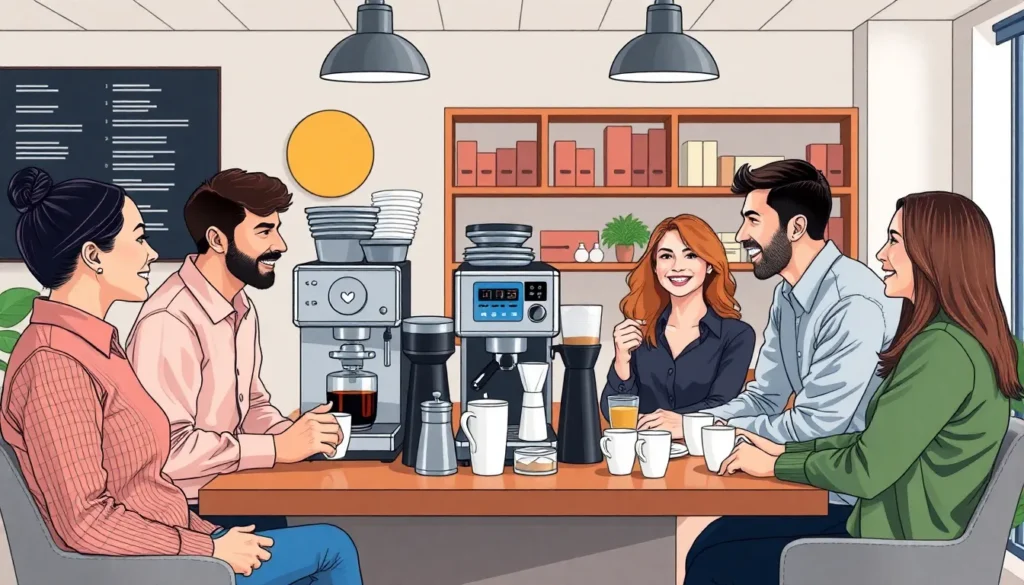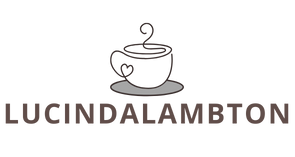Table of Contents
ToggleIn the bustling world of corporate life, there’s one thing that fuels creativity, sparks conversations, and occasionally leads to questionable decisions at the office party: coffee. Company culture coffee isn’t just a beverage; it’s a catalyst for connection, collaboration, and maybe even the next big idea. Imagine the aroma wafting through the halls as colleagues bond over their favorite brews, sharing laughs and brainstorming sessions that could rival a caffeine-fueled think tank.
But it’s not all about the caffeine buzz. A strong coffee culture can transform a workplace from a dull cubicle maze into a vibrant community. When employees gather around the coffee machine, they’re not just refueling; they’re building relationships and fostering a sense of belonging. So, grab your favorite mug and let’s dive into how company culture coffee can perk up morale, boost teamwork, and make the 9-to-5 grind a little more enjoyable.
Understanding Company Culture Coffee
Company culture coffee transcends the act of drinking coffee. It creates an environment where employees unite over shared experiences and interactions. Coffee stations often become informal meeting spots where brainstorming sessions emerge naturally.
Engagement rises in workplaces that prioritize coffee culture. Research shows that over 70% of employees appreciate companies that provide quality coffee options. Offering specialty brews can enhance satisfaction and motivate employees to connect with one another.
The coffee break serves as a respite from work demands. Employees relax, recharge, and often discuss projects or ideas during these breaks. These moments contribute to stronger relationships and team cohesion.
Cafés within workplaces encourage collaboration. They invite employees to engage with coworkers from different departments, fostering inclusivity. Regular coffee gatherings can align team goals and inspire innovative thinking.
A well-established coffee culture also boosts productivity. Employees experiencing fewer mid-afternoon slumps often perform better overall. Implementing coffee-related rituals or challenges can further energize the office atmosphere.
Accessibility of coffee as a common beverage promotes equality. When staff members of all levels share coffee moments, it levels the playing field. This shared experience cultivates a sense of belonging among all personnel.
Company culture coffee ultimately intertwines with workplace satisfaction. A robust coffee culture not only enhances daily routines but also builds a supportive community. Creating a coffee-centric atmosphere can lead to long-term benefits for both employees and the organization as a whole.
The Importance of Coffee in Company Culture

Coffee plays a vital role in fostering a positive workplace environment. It serves as a connector, bringing employees together and encouraging collaboration.
Encouraging Social Interaction
Coffee breaks create informal spaces for employees to meet and converse. Interactions at coffee stations often lead to brainstorming sessions that spark creativity. These moments build relationships beyond work tasks, enhancing team dynamics. Without a doubt, employees value these social opportunities, with over 70% expressing appreciation for quality coffee options in the workplace. Such cultural practices increase camaraderie and improve communication across diverse teams.
Boosting Employee Morale
A strong coffee culture directly influences employee satisfaction. Regular coffee moments provide necessary breaks, leading to rejuvenated energy levels. Access to quality coffee not only enhances the daily routine, but also uplifts spirits during long workdays. Engaging in coffee rituals fosters a sense of community and shared experiences among coworkers. As morale rises, productivity typically sees a boost, ensuring that employees remain motivated and focused on their tasks.
Types of Coffee Cultures in Companies
Coffee culture in companies manifests in various forms, influencing workplace dynamics and interactions. Two prominent types include casual coffee breaks and formal coffee meetings.
Casual Coffee Breaks
Casual coffee breaks serve as a vital aspect of daily office life. Employees often gather in break rooms or near coffee stations to recharge and socialize. These moments encourage spontaneous conversations that foster relationships among coworkers. They also create an informal environment that allows ideas to flow freely without the pressure of a structured meeting. Research shows that informal interactions can enhance creativity, leading to unique solutions and collaborative efforts. Casual breaks enhance team morale, providing a necessary pause from work tasks, which contributes to overall job satisfaction.
Formal Coffee Meetings
Formal coffee meetings create structured opportunities for collaboration. Companies often organize these sessions to discuss specific projects or ideas while enjoying coffee. Participants engage in focused discussions, utilizing the relaxed atmosphere to encourage open dialogue. These meetings serve as a platform for sharing innovative ideas and brainstorming collaboratively. The integration of coffee into formal meetings can make participants feel more comfortable, promoting candid exchanges. Studies suggest that incorporating coffee into the workplace boosts productivity by creating a welcoming space where employees can articulate their thoughts and strategies effectively.
How to Foster a Positive Coffee Culture
Creating a positive coffee culture involves thoughtful strategies that enhance collaboration and connection among employees.
Setting Up Coffee Stations
Establishing coffee stations is crucial for fostering a vibrant coffee culture. Employees benefit from easy access to quality coffee, which encourages frequent interactions. Stations should include a variety of options, such as single-origin beans and specialty blends, appealing to diverse tastes. Including essentials like cream, sugar, and alternative milk caters to preferences. Positioning coffee stations in high-traffic areas transforms them into informal meeting spots, where spontaneous discussions can lead to creativity and teamwork. Additionally, keeping the stations well-stocked and organized reflects a company’s commitment to employee satisfaction.
Hosting Coffee-Themed Events
Organizing coffee-themed events enhances community spirit within the workplace. Activities such as coffee tastings or brewing workshops educate employees and create enjoyable experiences. Employees can learn about different brewing methods, tasting techniques, and the origins of their favorite beans. Offering themed events quarterly or monthly ensures continual engagement and excitement around coffee culture. Team-building exercises combined with coffee breaks spark discussions and collaborations across departments. Furthermore, recognizing International Coffee Day with special celebrations cultivates inclusivity, making coffee a central element in workplace culture.
Company culture coffee isn’t just about the drink; it’s a vital component of workplace dynamics. By fostering connections and encouraging collaboration coffee plays a crucial role in enhancing employee morale and productivity. The shared moments around coffee breaks and meetings create an inclusive atmosphere that benefits everyone.
Establishing a strong coffee culture leads to a more vibrant and engaged workforce. It transforms mundane routines into opportunities for creativity and connection. As organizations continue to recognize the importance of these coffee rituals they’ll likely see lasting improvements in team cohesion and overall job satisfaction. Embracing coffee culture can truly elevate the workplace experience for all employees.




